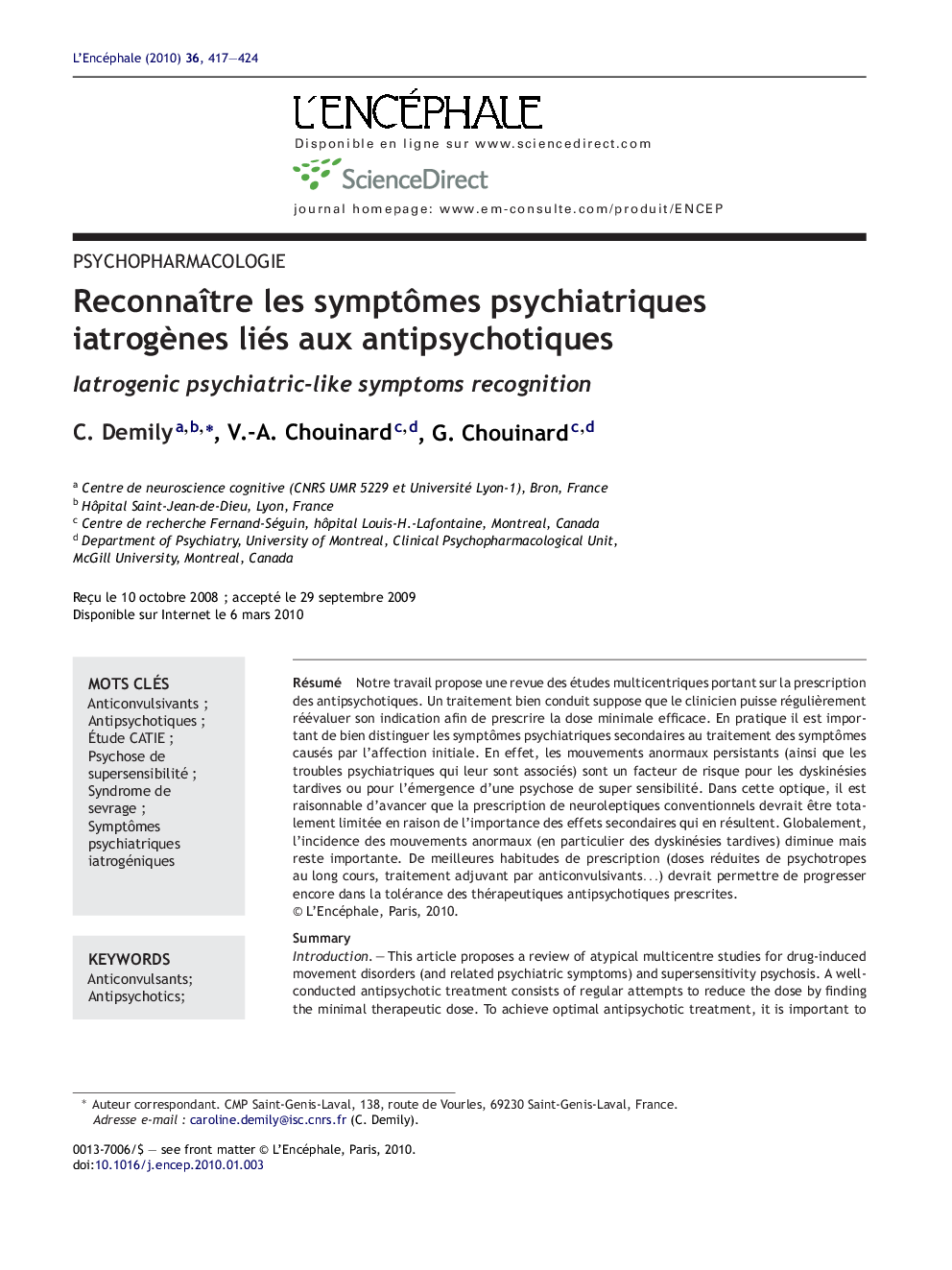| Article ID | Journal | Published Year | Pages | File Type |
|---|---|---|---|---|
| 4182505 | L'Encéphale | 2010 | 8 Pages |
Abstract
Supersensitivity psychosis is a drug-induced psychotic relapse (6Â weeks following the decrease or withdrawal of an antipsychotic). Discontinuation syndromes can produce psychiatric symptoms (and be confounded with true relapse), but can be improved more quickly after reintroduction of treatment. Interestingly, various data suggest that lower doses of antipsychotics could prevent such symptoms. Anticonvulsants can be efficient adjuvants in the treatment of psychosis. In the United States, many patients received valproate or gabapentin treatment. These adjuvants, by antikindling effect, can facilitate minimal maintenance drug treatment and be efficient for anxiety. Resistant schizophrenia can be related to supersensitivity psychosis; gabapentin and lamotrigine are effective in this case.
Keywords
Related Topics
Health Sciences
Medicine and Dentistry
Psychiatry and Mental Health
Authors
C. Demily, V.-A. Chouinard, G. Chouinard,
